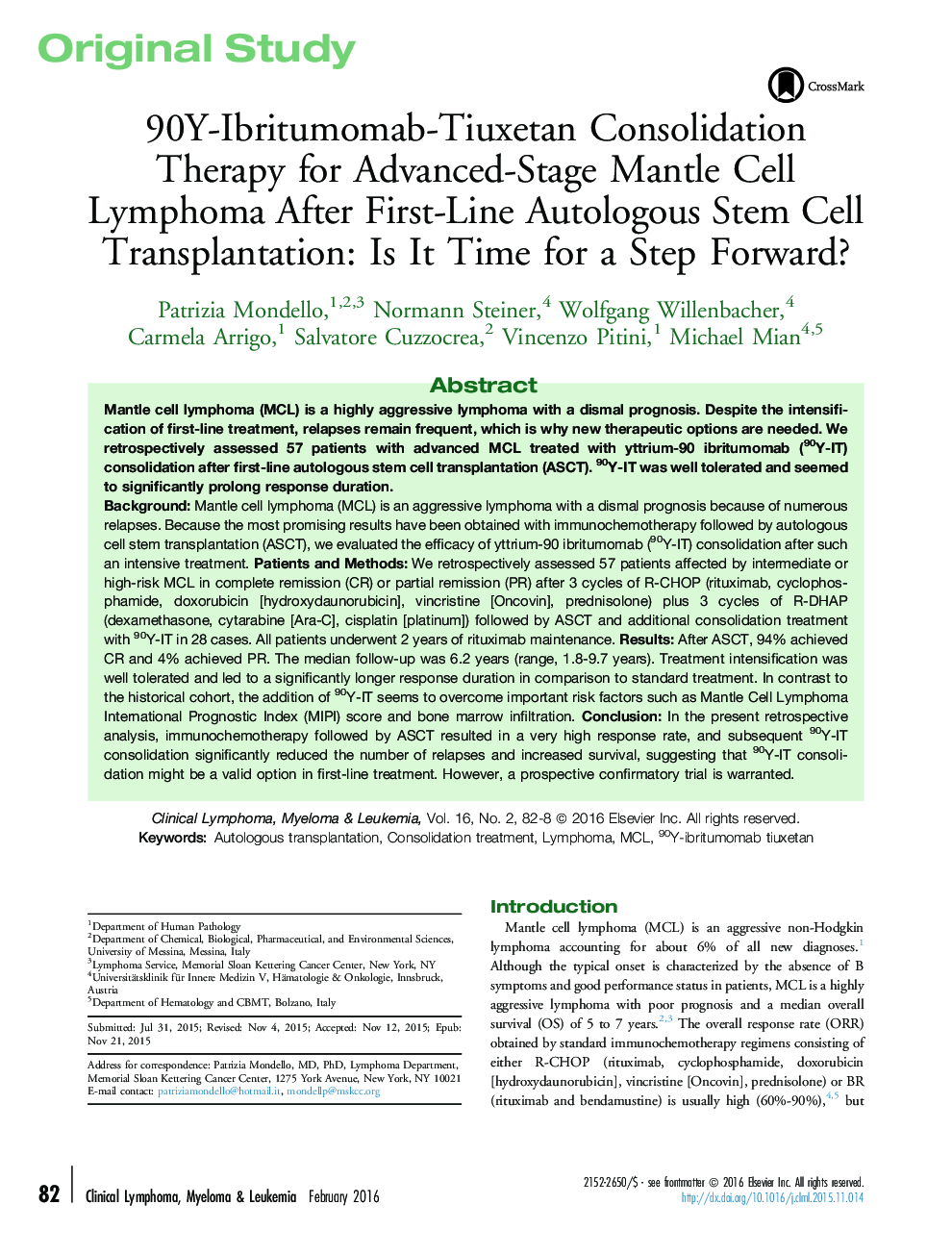| Article ID | Journal | Published Year | Pages | File Type |
|---|---|---|---|---|
| 2754292 | Clinical Lymphoma Myeloma and Leukemia | 2016 | 7 Pages |
BackgroundMantle cell lymphoma (MCL) is an aggressive lymphoma with a dismal prognosis because of numerous relapses. Because the most promising results have been obtained with immunochemotherapy followed by autologous cell stem transplantation (ASCT), we evaluated the efficacy of yttrium-90 ibritumomab (90Y-IT) consolidation after such an intensive treatment.Patients and MethodsWe retrospectively assessed 57 patients affected by intermediate or high-risk MCL in complete remission (CR) or partial remission (PR) after 3 cycles of R-CHOP (rituximab, cyclophosphamide, doxorubicin [hydroxydaunorubicin], vincristine [Oncovin], prednisolone) plus 3 cycles of R-DHAP (dexamethasone, cytarabine [Ara-C], cisplatin [platinum]) followed by ASCT and additional consolidation treatment with 90Y-IT in 28 cases. All patients underwent 2 years of rituximab maintenance.ResultsAfter ASCT, 94% achieved CR and 4% achieved PR. The median follow-up was 6.2 years (range, 1.8-9.7 years). Treatment intensification was well tolerated and led to a significantly longer response duration in comparison to standard treatment. In contrast to the historical cohort, the addition of 90Y-IT seems to overcome important risk factors such as Mantle Cell Lymphoma International Prognostic Index (MIPI) score and bone marrow infiltration.ConclusionIn the present retrospective analysis, immunochemotherapy followed by ASCT resulted in a very high response rate, and subsequent 90Y-IT consolidation significantly reduced the number of relapses and increased survival, suggesting that 90Y-IT consolidation might be a valid option in first-line treatment. However, a prospective confirmatory trial is warranted.
